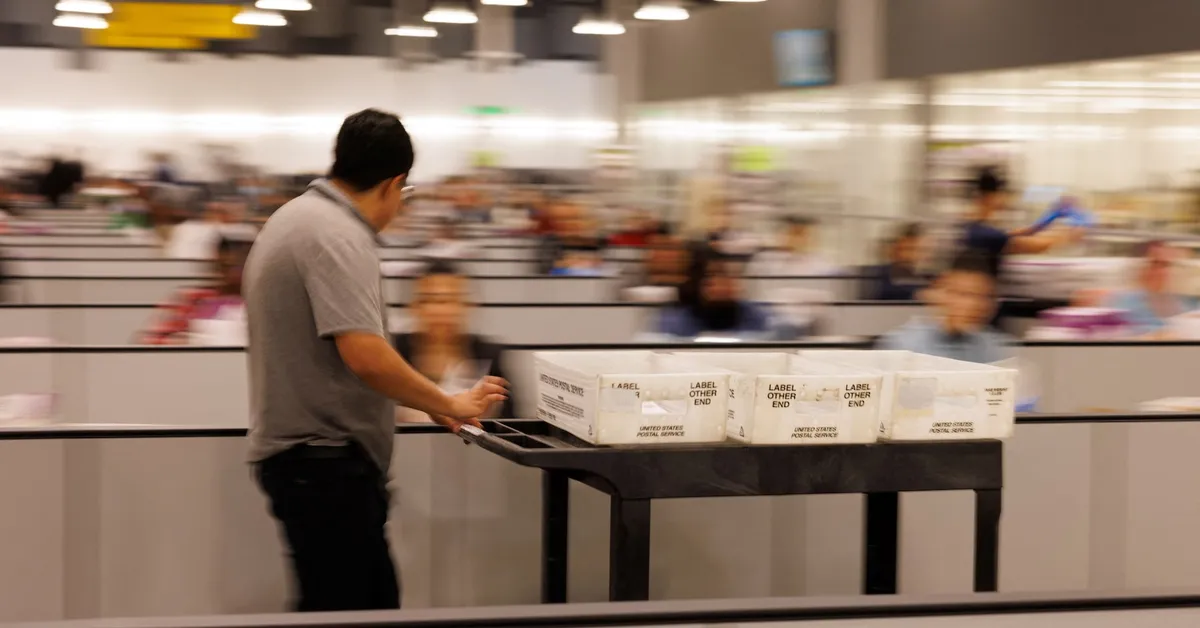
On August 18, 2023, former U.S. President Donald Trump made a bold announcement via social media, pledging to issue an executive order aimed at abolishing mail-in ballots and voting machines before the upcoming 2026 midterm elections. This significant move is anticipated to trigger legal challenges from various states across the nation.
In his post, Trump stated, "I am going to lead a movement to get rid of MAIL-IN BALLOTS, and also, while we’re at it, Highly 'Inaccurate,' Very Expensive, and Seriously Controversial VOTING MACHINES." His comments underscore his long-held skepticism regarding the security of mail-in voting, a topic he has frequently discussed since the contentious 2020 presidential election.
Despite widespread evidence supporting the legitimacy of the 2020 election results, in which Democrat Joe Biden emerged victorious, Trump has maintained a narrative suggesting he was the rightful winner. His ongoing criticism of mail-in ballots has led him to urge his fellow Republicans to push for comprehensive reforms to the U.S. voting system.
Interestingly, some Republican-led states, such as Florida, have adopted mail-in voting as a viable option, promoting it as a secure and convenient method to enhance voter participation. It is worth noting that Trump himself had previously utilized mail-in voting in various elections and encouraged his supporters to do the same for the 2024 presidential election.
According to the U.S. Election Assistance Commission, the use of mail-in ballots surged to record levels during the 2020 election, largely driven by the COVID-19 pandemic as states expanded voting options. However, participation through mail-in voting saw a notable decline in the subsequent 2024 election. Reports indicate that over two-thirds of voters chose to cast their ballots in person, while around 30% opted for mail-in voting.
Trump's comments came on the heels of a meeting with Russian President Vladimir Putin, during which Trump claimed that Putin concurred with his views on discontinuing mail-in balloting. Trump cautioned states to align with federal directives, asserting, "Remember, the States are merely an 'agent' for the Federal Government in counting and tabulating the votes." He emphasized the necessity for states to comply with federal guidance for the betterment of the country.
Additionally, Trump reiterated his false assertion that the U.S. is unique in permitting mail-in voting. In reality, nearly three dozen countries, ranging from Canada to Germany and South Korea, have provisions for postal voting, although many impose restrictions on voter eligibility, as reported by the Sweden-based International Institute for Democracy and Electoral Assistance.
It’s important to note that Trump previously enacted an executive order on March 25 aimed at election reforms, which faced legal hurdles and was blocked by the courts following lawsuits from Democrat-led states. As Trump continues to advocate for changes to the voting process, the implications of his proposed executive order remain uncertain.
As developments unfold, the debate surrounding mail-in ballots and the integrity of U.S. elections continues, highlighting a deeply polarized political landscape and the challenges of ensuring secure and accessible voting for all Americans.